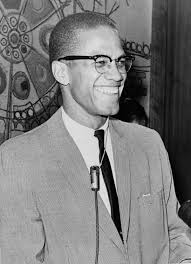The Enduring Legacy of Malcolm X in the Fight for Justice

Introduction
Malcolm X remains one of the most influential figures in American history, particularly in the context of the civil rights movement. His advocacy for black empowerment, his critiques of systemic racism, and his ability to articulate the frustrations of African Americans in a racially divided society make his legacy particularly relevant today. As discussions surrounding social justice and equality continue, the lessons and ideas espoused by Malcolm X serve as a reminder of the ongoing struggle for civil rights.
Main Body
Born Malcolm Little on May 19, 1925, in Omaha, Nebraska, Malcolm X faced racial discrimination from a young age. Following the murder of his father and the institutionalisation of his mother, he faced a tumultuous childhood. After becoming involved in criminal activities, Malcolm was incarcerated, where he converted to Islam and adopted the name Malcolm X, symbolising his lost tribal name.
After his release in 1952, he became a prominent figure in the Nation of Islam, advocating for black nationalism and Pan-Africanism. His oratory skills and charisma captured the attention of the African American community, allowing him to gain rapid influence. However, his philosophies evolved over time, especially following a pilgrimage to Mecca in 1964, after which he began to promote a more inclusive approach to civil rights that advocated unity beyond racial lines.
Malcolm X’s life was marked by his unwavering commitment to achieving justice through self-defense, as articulated in his famous quote, “By any means necessary.” This phrase encapsulated his approach to activism, contrasting with the nonviolent strategy of Martin Luther King Jr. His criticisms of systemic inequality resonated deeply at a time when the injustices faced by African Americans were starkly visible.
Tragically, Malcolm X’s life was cut short when he was assassinated on February 21, 1965, at the age of 39. Despite his early death, his influence endures through various cultural and political movements advocating for social justice, equality, and human rights, making him an enduring symbol of resistance.
Conclusion
The legacy of Malcolm X continues to inspire countless individuals and movements advocating for civil rights and racial equality around the world. As new generations confront and challenge these issues, the teachings and principles of Malcolm X remain potent and relevant. His story serves not only as a historical account but also as a call to action for those seeking to challenge injustice and advocate for a fairer society. Understanding his impact helps us better navigate the complexities of race relations today, ensuring that his vision for equality and justice is passed to future generations.









